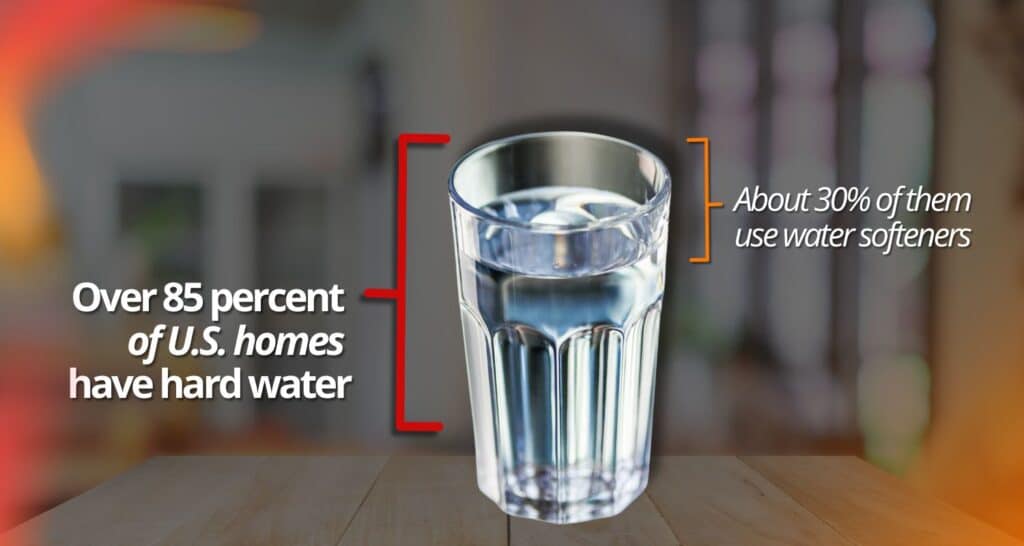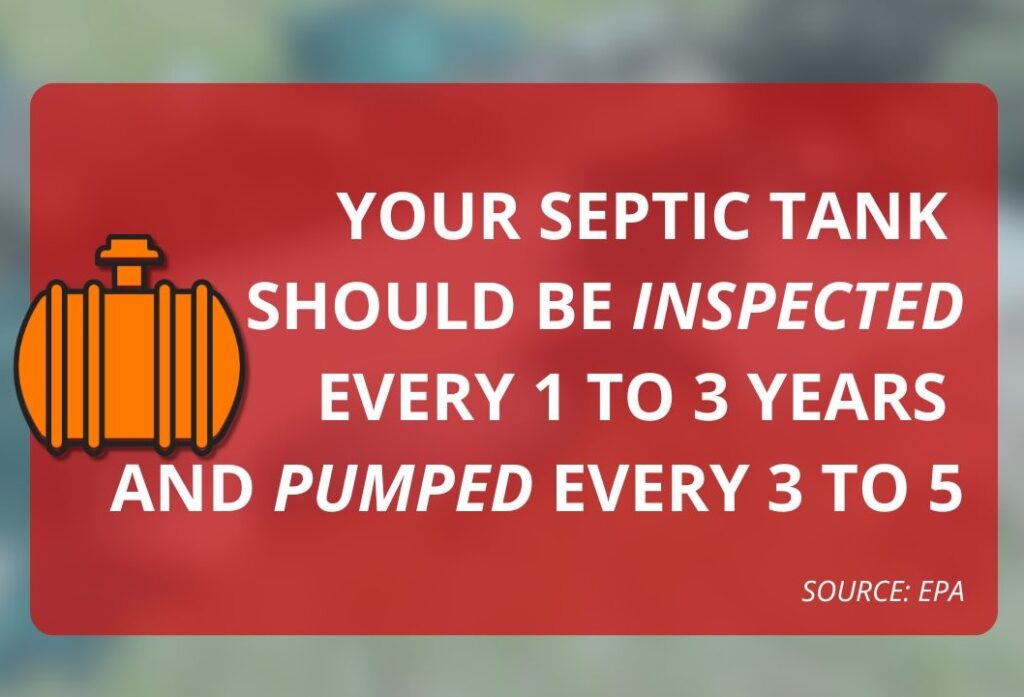Most Florida homeowners know about hard water. You’ve probably seen the white buildup on your faucets or showerheads. But what many don’t realize is that those same minerals can create serious problems once they get into your septic system. Hard water deposits can clog pipes, disrupt how your septic tank works, and even damage your drainfield over time. These issues are sneaky, and by the time you notice a problem, it’s often too late to avoid a costly fix.
Let’s walk through how this buildup forms, why it matters, and what you can do to protect your system.
What Hard Water Deposits Are and Why Florida Homes Have Them
Hard water contains high levels of calcium and magnesium. These minerals are picked up as water flows through limestone-rich ground, which is common in Florida. Over 85 percent of U.S. homes have hard water, but it’s especially common here along the Gulf Coast.
As hard water flows through your plumbing, it leaves behind small amounts of mineral buildup. These deposits form on anything the water touches, including pipes, fixtures, appliances, and yes, even your septic system.
The longer you go without addressing it, the more it builds up.

Where the Problems Begin Inside Your Septic System
Once those minerals make it past your plumbing and into your septic tank, they begin to cause problems.
Here’s what typically happens:
- The deposits collect at the inlet and baffles of the tank, slowing down how wastewater enters and exits
- The heavier mineral content changes how waste breaks down inside the tank
- Soap scum and grease react with hard water and become stickier, which makes the scum layer in the tank grow faster
- The good bacteria your system relies on to break down waste don’t thrive in high-mineral environments
All of this reduces how well your septic tank can do its job. The system becomes less efficient, fills up faster, and can even start sending solids where they don’t belong, like into your drainfield.
Why the Drainfield Is at Risk Too
If hard water buildup in your septic tank isn’t caught early, it can create a chain reaction. Solids that aren’t broken down properly can slip into the outlet pipe and reach your drainfield.
This is where things get expensive.
The drainfield is designed to handle clean, filtered water that soaks back into the ground. When it gets overloaded with solids or mineral-heavy water, it starts to clog. Water may begin to pool in your yard or back up into your home.
Fixing a drainfield, depending on the size and damage, repairs can cost anywhere from $2,000 to $10,000 or more. In some cases, the entire system needs to be replaced.
Signs Hard Water May Be Affecting Your System
You won’t see hard water deposits inside your septic tank, but you might notice signs like:
- Slower draining sinks and tubs
- More frequent clogs throughout your home
- Gurgling sounds when you flush
- Wet spots or odors in your yard
- Needing more frequent pump-outs than usual
If any of these are happening and you know you have hard water, the deposits could be playing a role. Hard water is measured in grains per gallon (GPG), a unit that tells you how much mineral content is in your water. One grain is equal to about a single kernel of wheat worth of minerals in a gallon of water.
Here’s a quick breakdown:
- 0–3 GPG = Slightly hard
- 3–7 GPG = Moderately hard
- 7–10 GPG = Hard
- 10–14 GPG = Very hard
- 15+ GPG = Extremely hard
Most homes in the Tampa Bay area fall into the very hard or extremely hard range, meaning high levels of calcium and magnesium are running through your pipes and into your septic system every day.
How to Reduce Its Impact
You can’t always control the mineral levels in your water, but you can limit the damage they cause.
Here are a few simple steps:
- Get your septic system inspected once a year
- Stick to a regular pump-out schedule, usually every 3 to 5 years
- Use low-sudsing and phosphate-free soaps and detergents
- Avoid harsh chemical cleaners that interfere with natural bacteria
- If you use a water softener, check that it’s not sending saltwater back into your tank
These small changes can prevent buildup and keep your system running longer with fewer issues.

Other Smart Septic Maintenance Tips
Hard water is just one piece of the puzzle. Keeping your septic system healthy long-term also means:
- Watching your water use, especially during laundry and showers
- Spacing out water-heavy tasks so the tank has time to process
- Keeping records of past inspections, pump-outs, or small problems
- Fixing leaky faucets or running toilets that can overwhelm your system
When you take care of your system before there’s an emergency, you avoid bigger repairs and costly surprises.
When to Call a Professional
Call Tampa Bay Septic if:
- You haven’t had your system inspected in over 3 years
- You live in an area with hard water and don’t know if buildup is an issue
- Your yard smells like sewage or has unexplained wet spots
- Your drains are slow and getting worse
- You’re using a water softener but don’t know where the backwash is going
We’ll take a close look at your tank, inspect the flow, and let you know if hard water deposits are a concern.
Final Thoughts
Hard water deposits might seem like a minor issue, but inside your septic system, they can cause serious damage over time. What starts as buildup in a pipe can lead to clogged lines, a sluggish system, or even drainfield failure.
The good news is, regular maintenance and a few simple changes to your daily habits can protect your home and help avoid thousands of dollars in repairs.
If you’re unsure whether hard water is affecting your septic system, now is the time to find out. Contact Tampa Bay Septic today to schedule a professional inspection and keep your system in great shape for years to come.
